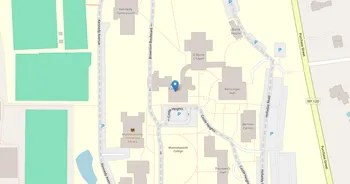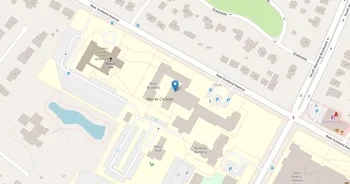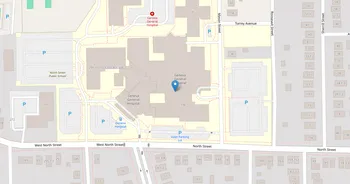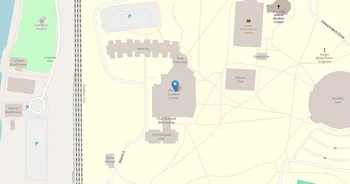Manhattan School of Music (MSM) : Overview, Courses, Scholarships & Rankings
About Manhattan School of Music
Tucked in Morningside Heights, Manhattan School of Music hums from first warmups to final bows. The conservatory is known for disciplined training in classical performance, jazz, composition, conducting, voice and opera, and musical theater. Studio-based teaching keeps the focus on craft. Facilities include acoustically tuned halls, plenty of practice rooms, recording resources, a well-stocked music library, and student services for advising, wellness, and career planning.
Campus life feels focused yet friendly; you'll hear scales in stairwells and laughter in the lobby. Students pack calendars with orchestras, combos, opera scenes, new music workshops, and student-led projects, plus quick escapes to nearby parks and the city's museums and venues. Career prep stays practical with mock auditions, visiting artists, and ties to the city's arts ecosystem. Harlem's legacy, Midtown stages nearby, and neighborhood churches and clubs offer real-world chances to grow. Traditions center on frequent performances that bring the community in. Notable alum: jazz bassist Ron Carter.
Key Institutional Details
Contact & Profile
Academic & Institutional
Academic Programs & Fields of Study
Manhattan School of Music (MSM) offers 11 degree programs across 1 major academic fields, graduating approximately 377 students annually. The most popular fields by graduate volume are Arts (11 programs, 377 graduates). Explore program details, award levels, and graduate demographics below.
Arts (11 programs, 377 graduates)
Fine Arts, Design Studies and Creative Performance
| Program Name | Graduates | Gender Distribution | Award Levels | CIP Code |
|---|---|---|---|---|
| Voice and Opera Performance | 95 |
|
Bachelor's
Master's
Post-Master's
|
50.0908 |
| Keyboard Instruments | 93 |
|
Bachelor's
Master's
Post-Master's
Doctorate (O)
|
50.0907 |
| Stringed Instruments | 69 |
|
Bachelor's
Master's
Post-Master's
Doctorate (O)
|
50.0911 |
| Jazz Studies | 43 |
|
Bachelor's
Master's
|
50.0910 |
| Musical Theatre | 23 |
|
Bachelor's
|
50.0509 |
| Woodwind Instruments | 21 |
|
Bachelor's
Master's
Post-Master's
Doctorate (O)
|
50.0915 |
| Brass Instruments | 15 |
|
Bachelor's
Master's
Post-Master's
|
50.0914 |
| Music Theory and Composition | 10 |
|
Bachelor's
Master's
|
50.0904 |
| Conducting | 5 |
|
Master's
Post-Master's
Doctorate (O)
|
50.0906 |
| Percussion Instruments | 2 |
|
Bachelor's
Master's
|
50.0916 |
| Music Performance | 1 |
|
Master's
|
50.0903 |
Admission Requirements & Test Scores
Comprehensive overview of admission criteria, standardized test score ranges, and application requirements for prospective students at Manhattan School of Music (MSM).
Application Requirements
Data based on IPEDS for 2022-2023 academic year. Test score ranges represent the middle 50% of admitted students (25th-75th percentile). Requirements may vary by program.
Tuition, Fees & Estimated Costs
Overview of tuition rates, housing, and other annual education expenses for undergraduate and graduate students
Financial Aid & Student Support
Summary of scholarships, grants, student loans, and financial aid statistics for undergraduate students
Student Success Metrics
Graduation rates and post-graduation earnings to help assess student outcomes and long-term value of education.
Loan Burden & Repayment Outcomes
Breakdown of loan repayment rates and student debt levels by income and dependency status.
Frequently Asked Questions
Find answers to the most common questions about Manhattan School of Music (MSM)
How much does it cost to attend Manhattan School of Music (MSM)?
The annual tuition at Manhattan School of Music (MSM) is $54,600 for in-state students. When including room and board, books, and other expenses, the total estimated cost is approximately $78,050 for in-state students. Additional costs include room and board $17,350 and books and supplies $1,500.
Data based on IPEDS program completions for 2022-2023 academic year. Tuition and cost estimates are approximate and may not include all fees, personal expenses, or transportation costs.
What academic programs and degree levels does Manhattan School of Music offer?
Manhattan School of Music (MSM) offers 11 academic programs across 1 major fields of study, with available degree levels: Certificate (≥2 yrs), Bachelor's, Postbac Cert., Master's, Post-Master's, Doctorate (Other).
Most popular program areas include:
- Fine Arts, Design Studies and Creative Performance (11 programs)
Data based on IPEDS program completions for 2023-2024 academic year. Numbers reflect programs where students graduated, not all offered programs.
What is the acceptance rate for Manhattan School of Music?
Manhattan School of Music (MSM) has an 39.9% acceptance rate and a 24.8% yield rate, making it highly selective.
Admission statistics breakdown:
- Total applicants: 1,432
- Students admitted: 572
- Students enrolled: 142
Data based on IPEDS for 2022-2023 academic year. Admission statistics may vary by program and application cycle.
What financial aid and scholarships are available at Manhattan School of Music?
Manhattan School of Music (MSM) provides financial aid to 30% of first-time, full-time students, with average grants of $22,868 and average loans of $7,557.
Average financial aid amounts by type:
- Pell grants: $5,605
- State/Local grants: $6,208
- Institutional grants: $21,947
- Federal loans: $5,488
The university supports 131 students with grants and 44 students with loans annually.
Data based on IPEDS for 2022-2023 academic year. Financial aid amounts and percentages may vary by program, enrollment status, and individual circumstances.
What is the average salary for Manhattan School of Music graduates?
Manhattan School of Music (MSM) graduates earn a median salary of $18,815 after 6 years and $26,878 after 10 years.
The salary range 10 years after graduation spans from $11,725 (25th percentile) to $52,252 (75th percentile).
Data based on IPEDS for 2022-2023 academic year. Salary data reflects graduates who received federal financial aid (approximately 60% of all graduates). Actual earnings may vary significantly based on program, location, and individual circumstances.
Related Universities




Found something useful? Help others discover it too! Share with friends, on social media, or save for later - every share helps someone find the information they need.